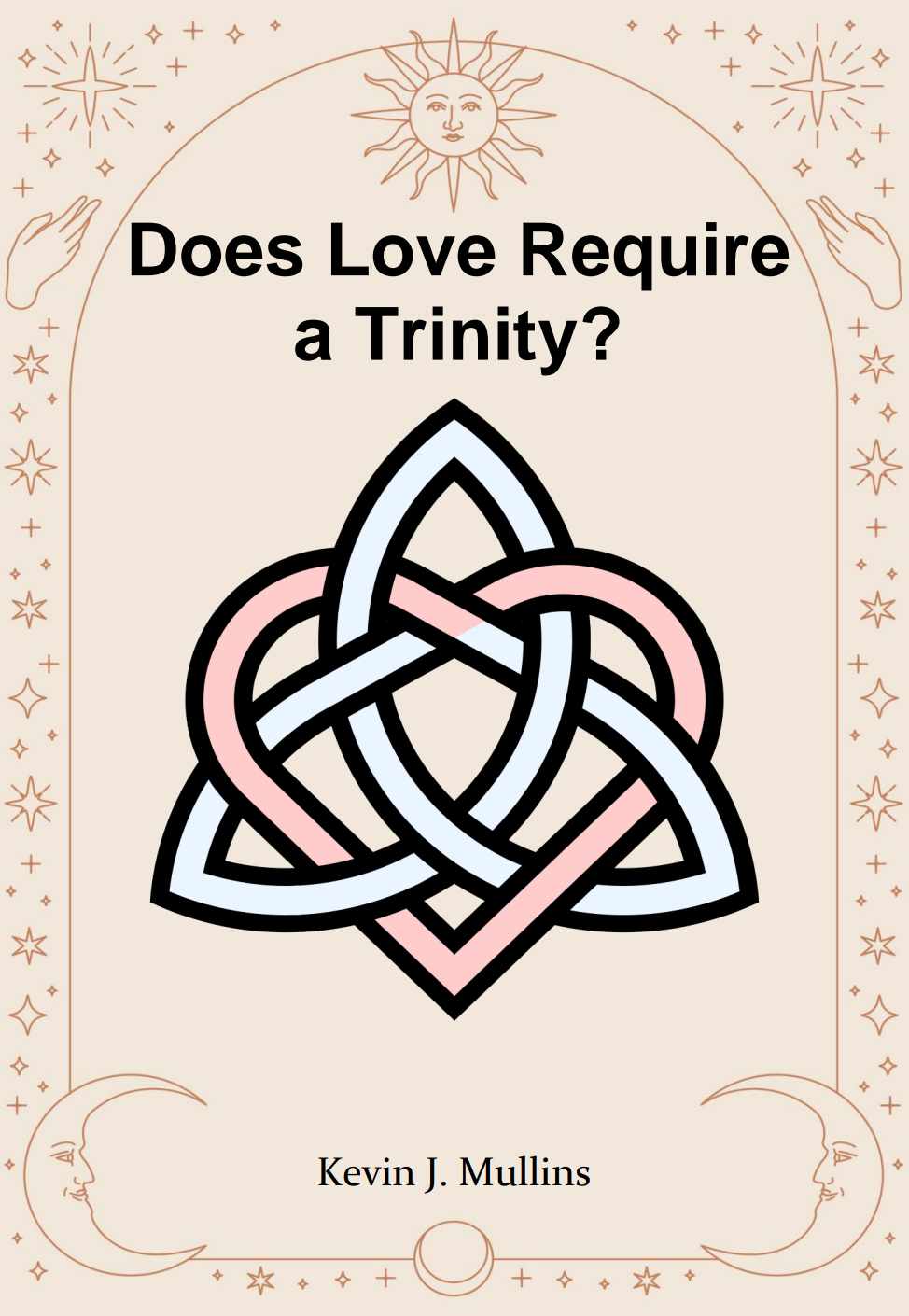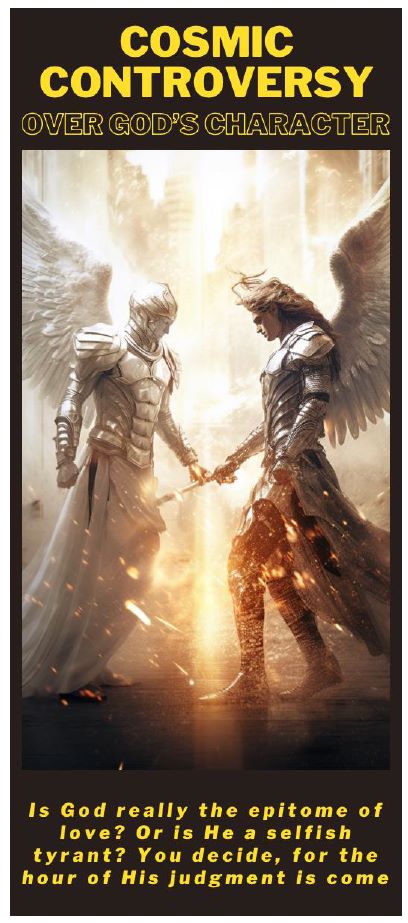(Galatians 3:19) Wasn’t the Law “added” at Mt. Sinai?
“What purpose then does the Law serve? It was added because of transgressions, till the Seed should come to whom the promise was made; and it was appointed through angels by the hand of a mediator.” (Galatians 3:19, New King James Version)
 The belief that God’s Law was only given to Israel at Mt. Sinai stems from a misunderstanding of Galatians 3:19, which speaks of the Law being “added.” The false reading of this verse says there was no Law (no Ten Commandments, nor Statutes and Judgments, Sabbaths, Festivals etc.) before Mt. Sinai, yet I believe we have established the truth of their existence in another article, which you can CLICK HERE to read.
The belief that God’s Law was only given to Israel at Mt. Sinai stems from a misunderstanding of Galatians 3:19, which speaks of the Law being “added.” The false reading of this verse says there was no Law (no Ten Commandments, nor Statutes and Judgments, Sabbaths, Festivals etc.) before Mt. Sinai, yet I believe we have established the truth of their existence in another article, which you can CLICK HERE to read.
It is true that there wasn’t a written Law per se, but the principles of God’s Law were definitely there. How else could the killing of Abel by Cain, and adultery in the time of Joseph be called sin? (Genesis 4:7; 39:7-9)?— “For sin is the transgression of the Law” (1 John 3:4). How would Noah have known the difference between the clean and unclean creatures (Genesis 7:2)? What did God mean when He said, “Abraham obeyed My voice, and kept My charge, My Commandments, My Statutes, and My Laws” (Genesis 26:5)? Or what was Moses referring to when, before he even received the Law from God upon Mt. Sinai, he told Jethro that, when the people had disputes, “I do make them know the Statutes of God, and His Laws” (Genesis 18:16)?
The fact that God’s Law was originally written in the heart and mind of mankind clearly reveals that God’s Law has never been something that God has imposed upon us. Yes, He had to write this Law upon stone tablets, but this was not His ideal will. His will is for us to be filled with His Holy Spirit (His selfless presence, life, and attitude) so we will unconsciously walk in harmony with His Laws, which are simply the design protocols upon which life operates based upon the design principle of love.

In answering the Pharisees’ question of, since we are saved by grace through faith alone, “what purpose then does the Law serve?”, Paul says, “it was added because of transgression” (Galatians 3:19). Transgression of what? The Law! Let me explain.
The Greek word for “added” here is προστίθημι (prostithémi), which is the same Greek word used in Hebrews 12:9 translated as “spoken” referring to the voice of God speaking His Law from Sinai. Some, taking the English word “added” in this clause in Galatians 3:19, and holding it in the restricted English sense of “added,” have supposed that it is here taught that whatever law is referred to was necessarily added to something as a part of that thing, and so have held that it was added to the covenant with Abraham. But such a view as that would plainly be a mistake. From its use throughout Scripture, it is plain that it is not necessarily implied that what is referred to should be literally added in the sense of a mathematical addition.
One expression in which the Greek word is used is, “Seek ye first the kingdom of God, and His righteousness; and all these things shall be added unto you” (Matthew 6:33). Here it is plain that the expression is equivalent to merely to “give”—“all these things shall be given unto you,” or “ye shall receive all these things.” The Law, then, was given, was spoken, and was added, because of transgression. If mankind would have kept God’s Law in heart and mind, there would have been no necessity for it to be proclaimed from Sinai or engraved upon the tables of stone. Furthermore, if the people of God had obeyed the principles of the Ten Commandments, there would have been no need of the specific directions given to Moses, which he wrote in a book, relative to their duty to God and to one another. The definite directions which the Lord gave to Moses in regard to the duty of His people to one another, and to the stranger, are the principles of the Ten Commandments simplified and given in definite manner, that they need not err.
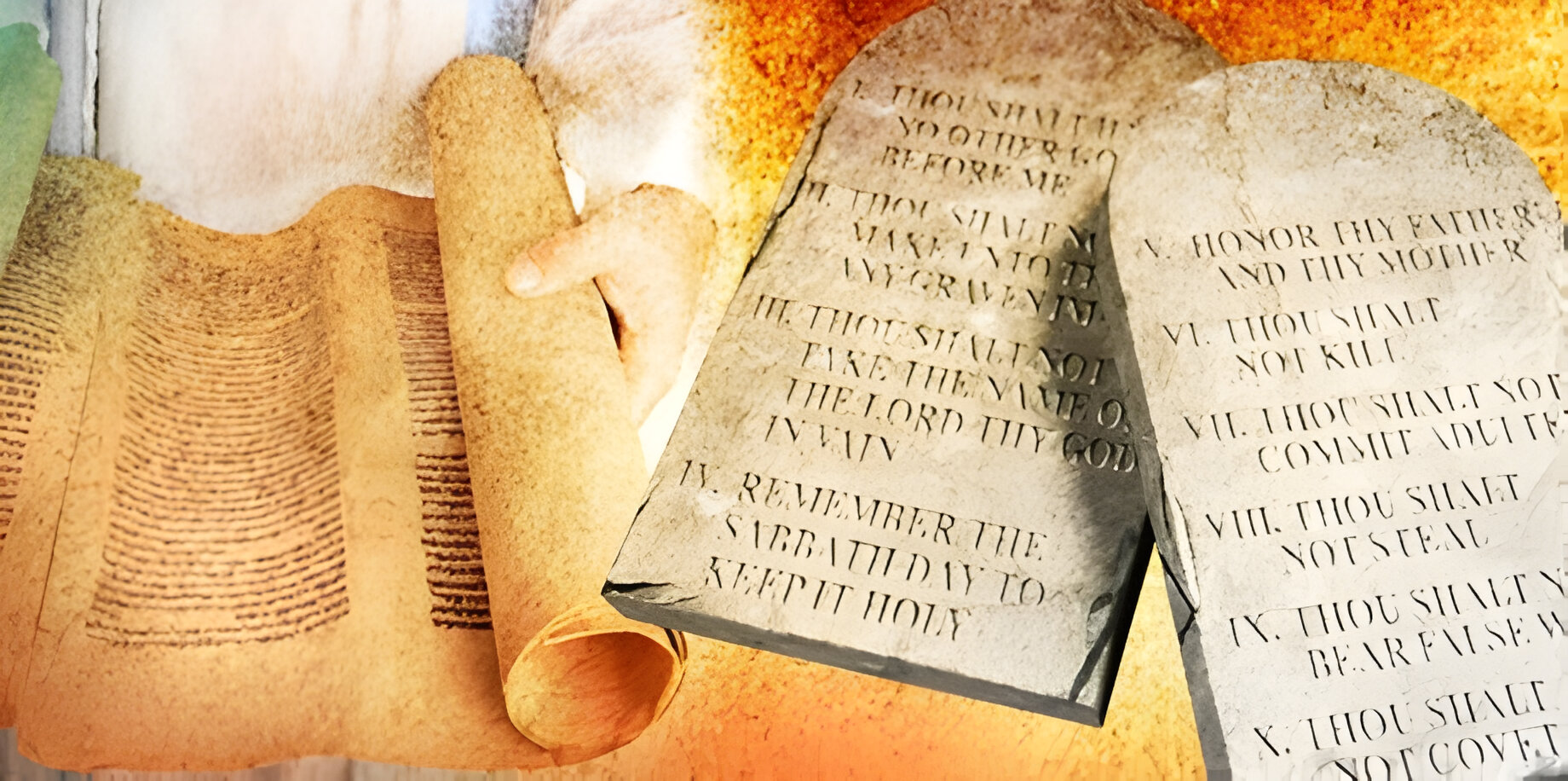
This corresponds exactly to the other expressions with reference to the entering of the Law of God: “Moreover the Law entered, that the offence might abound” (Romans 5:20a). “That sin by the Commandment might become exceeding sinful” (Romans 7:13). Therefore, the Law was “given” or “spoken” at Mt. Sinai to magnify (bring to acknowledgment) how far mankind had fallen into transgression (sin). This was not done so God could condemn us but so that His “grace might much more abound” (Romans 5:20b). This is why Paul says:
“Wherefore the Law was our schoolmaster to bring us unto Christ, that we might be justified by faith.” (Galatians 3:24)
The Law is not meant to merely “point” us to Christ, but it literally “brings” us to Christ. This Gospel (Good News) was the same for those back then as it is to us today (Hebrews 4:2). It is a mistake to believe that those living before Jesus died on the cross only had the Law and therefore they must only look forward to the time of Jesus’ death. Paul is not teaching dispensationalism (the idea that the Law without grace was before the cross while grace without the Law is something given after the cross). No, the Law spoken and given at Mt. Sinai was meant to bring them to Christ to receive abounding grace right there and then, for it is only by God’s grace (power) that mankind can walk in harmony with God’s Law (Romans 1:5).
But Doesn’t Paul Say, “Till the Seed (Jesus) Should Come”?
Now, what about the clause, “till the seed should come to whom the promise was made” (Galatians 3:19)? The traditional idea within mainstream Christianity is that the “added” Law was given only until Christ, the Seed, would come and die in our place as a payment to God to appease His wrath against us and satisfy His justice. After this event, the Law is abolished, and God can no longer punish those who accept Christ as their substitute. (Yes, this is actually taught within Christianity!). For example, GotQuestions.org says:
“The key to understanding the relationship between the Christian and the Law is knowing that the Old Testament law was given to the nation of Israel, not to Christians. Some of the laws were to reveal to the Israelites how to obey and please God (the Ten Commandments, for example). Some of the laws were to show the Israelites how to worship God and atone for sin (the sacrificial system). Some of the laws were intended to make the Israelites distinct from other nations (the food and clothing rules). None of the Old Testament law is binding on Christians today. When Jesus died on the cross, He put an end to the Old Testament law (Romans 10:4; Galatians 3:23–25; Ephesians 2:15).” (Do Christians Have to Obey the Old Testament Law?)
Take note that one of the “proof” texts they give is from Galatians chapter 3. (Romans 10:4 and Ephesians 2:15 are discussed later in this article). The problem with this answer is the suggested idea of an “Old Testament Law.” This again stems from a faulty understanding of the Old and New Covenants, which mainstream Christianity teaches are two opposing eras of time (before the cross/after the cross). In this view, the Law given upon Mt. Sinai is an Old Dispensation Law only given to the nation of Israel until Christ (the Seed) should come and “put an end to the Old Testament law.” If you are interested in reading how the Bible actually defines the Old and New Covenants, see my article entitled: Why Does God Say, ‘I Kill, and I Make Alive’?
There are however some arguments as to what law was “added” in a mathematical sense at Sinai among Christianity.
- Group #1: The majority of Christianity suggests that the whole of God’s Law, including the Ten, the Statutes and Judgments, and the weekly and annual Sabbaths and Festivals etc. were added in a mathematical sense at Mt. Sinai until the Seed (Jesus) came and died.
- Group #2: Other minority groups, however, suggest that the law which was “added” in a mathematical sense was only the “ceremonial law” with its annual Sabbaths and Festivals etc. Thus, it was this law that was abolished when the Seed (Jesus) came and died. The “moral Law” however, with its Ten Commandments, including the weekly Sabbath have been in place since the beginning, and will remain forevermore. Even the dietary and tithing instructions not mentioned in the Ten have crept through as well.
- Group #3: An even more minority group (which is where I fall into) is that it most definitely refers to the whole Law, including the Ten, the Statutes and Judgments, and the weekly and annual Sabbaths and Festivals etc., which was “added” not in a mathematical sense, but existed from the beginning and then “spoken” and “given” in written form at Mt. Sinai to magnify the transgression of said Law until the Seed should come “to whom the promise was made.”
Groups 1 and 2 both agree that the Seed to come was Christ at His first coming and thus the whole Law or part of the Law was abolished at His death. However, Group #3 asks if it is possible that Paul is referring to Christ’s second coming and not His first? Scripture seems to respond with a resounding yes!
Speaking of the removing of the diadem and crown of the king of Judah, Ezekiel 21:27 says:
“I will overturn, overturn, overturn, it; and it shall be no more, until HE [Jesus] COME whose right it is; and I will give it to Him.”
 What coming is this? The answer to this question can be given only by a consideration of the facts in the case. Jesus came the first time, but instead of receiving that crown, He received a crown of thorns; instead of being seated upon that throne, He was nailed to the cross. So, we know that that was not the coming referred to in the text, but that it is His second coming when “The Lord God will give Him the throne of His father David” (Luke 1:32) and having “many royal crowns on His head” (Revelation 19:12). Then it is that “the kingdoms of this world become the kingdoms of our Lord, and of His Christ; and He shall reign forever and ever” (Revelation 11:15). This is the coming of Him whose right it is, that is referred to in the text, and then it will be given Him.
What coming is this? The answer to this question can be given only by a consideration of the facts in the case. Jesus came the first time, but instead of receiving that crown, He received a crown of thorns; instead of being seated upon that throne, He was nailed to the cross. So, we know that that was not the coming referred to in the text, but that it is His second coming when “The Lord God will give Him the throne of His father David” (Luke 1:32) and having “many royal crowns on His head” (Revelation 19:12). Then it is that “the kingdoms of this world become the kingdoms of our Lord, and of His Christ; and He shall reign forever and ever” (Revelation 11:15). This is the coming of Him whose right it is, that is referred to in the text, and then it will be given Him.
Again, it is written that the “seed of the woman”, referring to the coming Messiah, should bruise the serpent’s head (Genesis 3:15). That Seed CAME, and did not bruise the serpent’s head, but Himself was bruised instead (Isaiah 53:5). And after He had come, and had thus been bruised, even to death; had risen again from the dead; and had ascended to heaven, —even thirty years after these things—it was written: “The God of peace shall bruise Satan under your feet shortly” (Romans 16:20). The context in Galatians shows this to be true.
“Now to Abraham and his Seed were the promises made. He does not say, ‘And to seeds,’ as of many, but as of one, ‘And to your Seed,’ who is Christ. And this I say, that the Law, which was four hundred and thirty years later, cannot annul the covenant that was confirmed before by God in Christ, that it should make the promise of no effect. For if the inheritance is of the Law, it is no longer of promise; but God gave it to Abraham by promise. What purpose then does the Law serve? It was added because of transgressions, till the Seed should come to whom the promise was made; and it was appointed through angels by the hand of a mediator.” (Galatians 3:16-19)
This promise of inheritance was given directly to the Seed, who is Christ. “I will declare the decree: The Lord has said to Me, ‘You are My Son, Today I have begotten You. Ask of Me, and I will give You The nations for Your inheritance, and the ends of the earth for Your possession.” (Psalm 2:7-8).
Thus, it is fixed by the Word itself that the promise referred to is the promise of the inheritance. And whatever law it is that is here referred to, it is given, added, till He comes to whom the promise of the inheritance was made. Now, at His first coming, did Jesus receive any of the inheritance? —No; no more than did Abraham, to whom with Him, the promise was made. Jesus clearly said, “Foxes have holes, and birds of the air have nests, but the Son of Man [The Messiah/Jesus] has nowhere to lay His head” (Matthew 8:20). And of Him it was equally true, as with Abraham, that, even though God had promised Abraham the inheritance of the land, “God gave him no inheritance in it, not even enough to set his foot on” (Acts 7:5). Why? “For the promise to Abraham or to his descendants that he would be heir of the world [kosmos] was not through the Law, but through the righteousness of faith” (Romans 4:13).
The inheritance is the whole world— the kosmos— including the whole universe. This will be given to Christ after His second coming! Therefore, since the coming referred to in this clause is the coming in connection with the inheritance and the receiving of it, this settles it beyond all possibility of controversy that the Law of God must remain in full force and obligation until the second coming of Christ and the end of the world. And we all know that it will not even be abolished then.
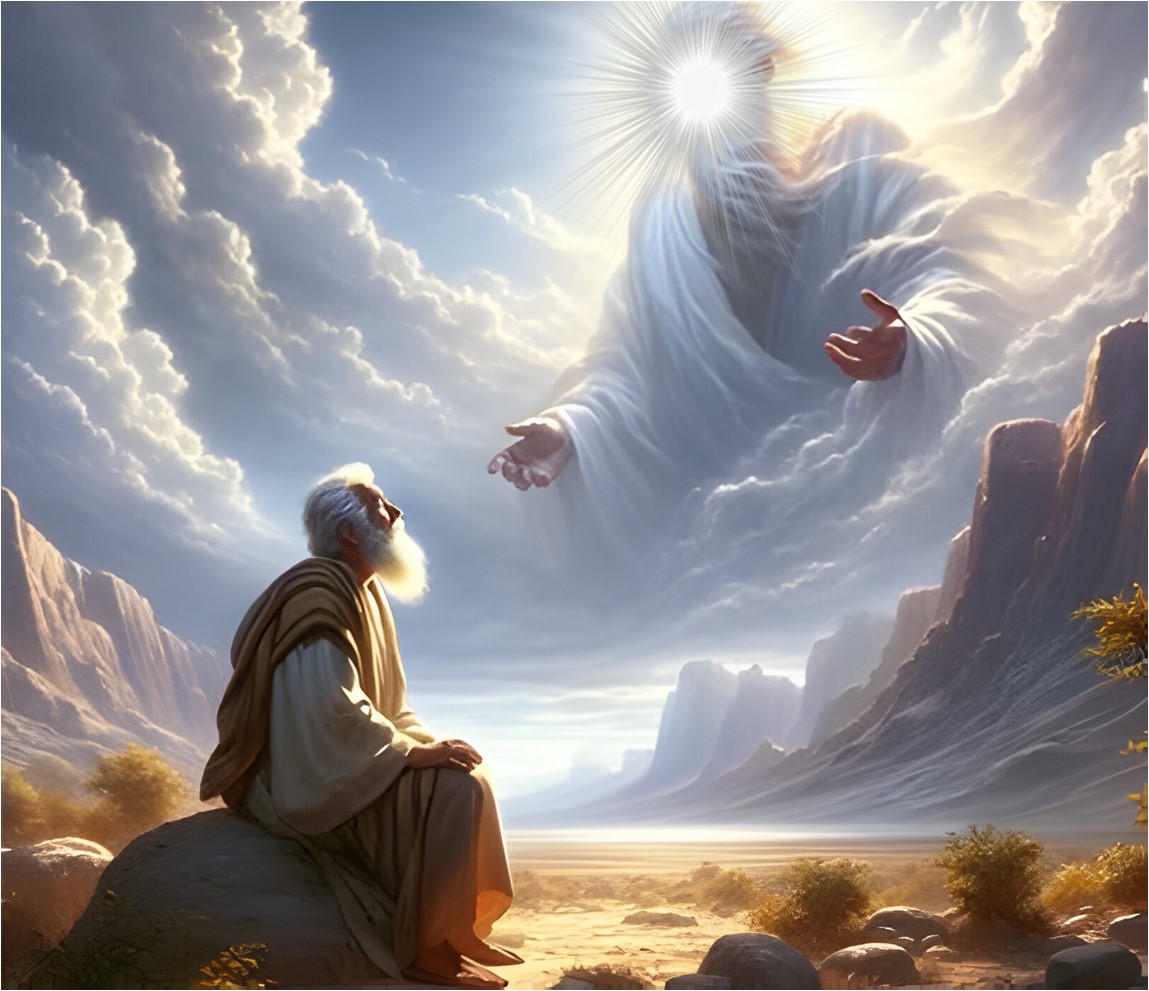 Indeed, God made the covenant (an everlasting covenant) with Abraham in a pledge to Abraham that he would inherit that which God had promised. For after God had promised it to him, Abraham’s faith waned a bit and he asked, “Whereby shall I know that I shall inherit it?” In answer, God condescended to meet Abraham where he was at in his trust with God and entered into with him that blood covenant as was customary among men at the time, in which He pledged His life that the promise of the inheritance should never fail (Genesis 15:8-18).
Indeed, God made the covenant (an everlasting covenant) with Abraham in a pledge to Abraham that he would inherit that which God had promised. For after God had promised it to him, Abraham’s faith waned a bit and he asked, “Whereby shall I know that I shall inherit it?” In answer, God condescended to meet Abraham where he was at in his trust with God and entered into with him that blood covenant as was customary among men at the time, in which He pledged His life that the promise of the inheritance should never fail (Genesis 15:8-18).
All that ever came in after that covenant was made, was, in blessing men, to enable them to attain to the fullness of that covenant, and to the inheritance of which that everlasting covenant is the pledge. And this was exactly the object of the giving of the Law of God on Mt. Sinai. For if men had kept that covenant, they would have kept God’s Law in mind, and there would have been no necessity for it to be proclaimed from Sinai or engraved upon the tables of stone. The object of that Law, thus written and given to men, bringing transgressions to a head, making sins abound, was and is that men might find the grace of Christ much more abounding, —that through Him they might attain to the fullness of that everlasting covenant with Abraham, and so to the inheritance of which that covenant was and is the pledge.
And to allow the coming of the Seed to whom the promise of the inheritance was made, to be the second coming of Christ, and not his first, —this gives opportunity for the Law of God, in its written form, to fulfill its grand object, which is the bringing of men, through faith in Christ, to the fullness of that everlasting covenant. This is why Paul wrote:
“Christ is the End of the Law”
“For Christ is the end of the Law for righteousness to every one that believeth.” (Romans 10:4, King James Version)
This is one of the “proof” texts given in the GotQuestions.org article we referred to earlier. They use it because they believe it is saying Christ put an end to the Law. The Good News Translation says it this way, “For Christ has brought the Law to an end.”
However, the word “end” here is the Greek word, τέλος (telos), which is used here in the sense of “end-objective”; “goal”; or “purpose.” Christ is the end-objective of the Law, because the purpose of the Law is to bring us to Christ for healing and restoration. It doesn’t mean the Law has come to an end, as in abolished. In Paul’s letter to timothy, he writes:
“Now the end [telos] of the Commandment is charity out of a pure heart, and of a good conscience, and of faith unfeigned.” (1 Timothy 1:5)
Clearly this is speaking of the end-objective of the Commandment is to lead us into charity (love), good conscience, and faith. The New King James Version translates it like this:
“Now the purpose of the Commandment is love from a pure heart, from a good conscience, and from sincere faith.”
Another example of this is found in the book of James:
“… Ye have heard of the patience of Job, and have seen the end [telos] of the Lord; that the Lord is very pitiful, and of tender mercy.” (James 5:11)
I’m sure you do not believe James is teaching that the Lord has come to an end; that He has been abolished. He is simply teaching that the end-objective of the Lord is to show pity and tender mercy. The English Standard Version states it like this:
"You have heard of the steadfastness of Job, and you have seen the purpose of the Lord, how the Lord is compassionate and merciful."
Therefore, like an x-ray machine that reveals the deep hidden damage inside the body, God’s Law reveals the deep hidden damage inside the soul. And just as the x-ray machine has no power to heal the damage, the Law of God has no power to heal the damaged soul from sin. The purpose of the x-ray machine leads us to the doctor or surgeon who can heal the damage. In the same way, God’s Law leads us to Christ, our great Physician, to heal and restore us. Thus, although the Law cannot save (heal) us from sin, Paul confirms that “the Law is holy, and the Commandment holy and just and good” (Romans 7:12). Take note he does not say “the Law was holy” but is (presently) holy, just, and good.
The fullness of the everlasting covenant is the righteousness of God—the keeping of the Commandments. Not by our own efforts and works, which is of the Old Covenant mindset of believing we need to aid God in fulfilling His promise (Ephesians 2:8-9); no, it is purely in harmony with the New Covenant mindset of “being fully convinced that what He [God] has promised He [God] is also able to perform” (Romans 4:21). “For we are His workmanship, created in Christ Jesus unto good works, which God hath before ordained that we should walk in them” (Ephesians 2:10). The believer must be brought to the fullness of that Everlasting Covenant (promise) in order that they may receive the inheritance, of which that Everlasting Covenant is the pledge.
“But What About Ephesians 2:14-15?”
“For He is our peace, who hath made both one, and hath broken down the middle wall of partition between us; having abolished in His [Christ’s] flesh the enmity, even the law of commandments contained in ordinances; for to make in Himself of twain one new man, so making peace.” (Ephesians 2:14-15)
Here Paul compares “the middle wall of partition” with “the law of commandments contained in ordinances” which has caused “enmity” (hostility) between Jews and Gentiles and thus has alienated us from God. The word he uses for “ordinances” is δόγμασιν, which is where we get the English word “dogma.” This word is primarily used for arbitrary rules, decrees, and commands, and appears in the Septuagint (Greek translation of the Hebrew Scriptures) only in the book of Daniel, and only in connection with decrees made by pagan kings (Daniel 2:13; 3:10,12,29; 4:6; 6:8-13,15,26). It also appears in the Apocryphal book of 1 Maccabees 1:3 referring to “traditions.”
In Ephesians 2, Paul is not referring to God’s Law here. He’s referring to the dogma of the oral “law of commands” created by Jewish leaders which they had added to God’s Law. This man-made oral law is spoken of in the Epistle of Aristeas (139-142) and in the Jewish Mishnah (Pirkei Avot 1:1) as being a “fence” around God’s written Law that was put in place to strengthen the separation between Jew and Gentile. It is this “wall” (fence) of man-made “dogma”, (not God’s Commands) that Jesus “tore down” bringing peace between Jew and Gentile in Him, thus answering the prophecy in Isaiah 11:13; Galatians 3:26-29. (In fact, it is these “ordinances” or “dogmas” that Paul is referring to in Colossians 2:14, not God’s Law as mainstream Christianity teaches. For more details on this, CLICK HERE).
As Paul states above in Ephesians 2:15, when Christ came to earth as a human, one of the things He accomplished was creating in Himself “one new man”, or one new humanity, thus healing humanity back into God’s image and bringing us back into complete harmony with God’s Law (His design protocol upon which life naturally operates); for one provision of the Everlasting Covenant is, “I will put My Law in their inward parts, and write it in their hearts” (Jeremiah 31:33; see also, Hebrews 8:10).
That provision will not be accomplished in its fullness until men are brought to the actual keeping of the Commandments of God through the indwelling faith of Jesus; so that the Lord, looking down from heaven upon them, can say, in perfect truth: “Here are they that keep the Commandments of God, and the faith of Jesus” (Revelation 14:12).
 Another provision of that Covenant promise is: “None of them shall teach his neighbor, and none his brother, saying, ‘Know the Lord,’ for all shall know Me, from the least of them to the greatest of them” (Hebrews 8:11). With the Law written in our hearts and minds, we are now able to experience the New Covenant as really as was Abraham; Abraham? Yes, Abraham! In Galatians 4:22-26, Paul reveals how Abraham experienced BOTH covenants during his lifetime. Thus, the statement from GotQuestions.org above which says, “the Old Testament law was given to the nation of Israel, not to Christians” is incorrect; for, although Abraham didn’t understand fully, He was indeed a CHRISTIAN! (See again, the aforementioned article entitled: Why Does God Say, ‘I Kill, and I Make Alive’?).
Another provision of that Covenant promise is: “None of them shall teach his neighbor, and none his brother, saying, ‘Know the Lord,’ for all shall know Me, from the least of them to the greatest of them” (Hebrews 8:11). With the Law written in our hearts and minds, we are now able to experience the New Covenant as really as was Abraham; Abraham? Yes, Abraham! In Galatians 4:22-26, Paul reveals how Abraham experienced BOTH covenants during his lifetime. Thus, the statement from GotQuestions.org above which says, “the Old Testament law was given to the nation of Israel, not to Christians” is incorrect; for, although Abraham didn’t understand fully, He was indeed a CHRISTIAN! (See again, the aforementioned article entitled: Why Does God Say, ‘I Kill, and I Make Alive’?).
However, neither the world nor we have attained to that point where it is not necessary any more for any man to teach his neighbor or his brother, saying, “Know the Lord.” And this part of the Everlasting Covenant will not be met in its fullness until, through the blessing and power of God, the Last Message of Mercy (i.e., the full revelation of God’s character of love) be given to the world by word and action and “the mystery of God shall be finished” (Colossians 1:26-27; Revelation 10:7).

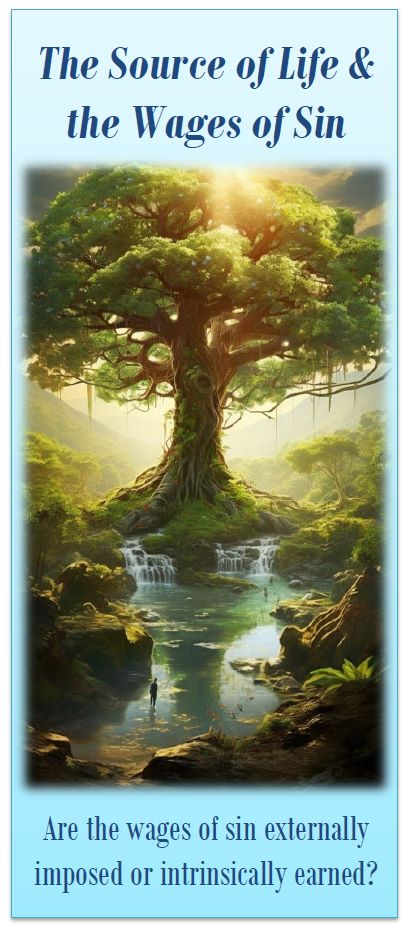
.png)
